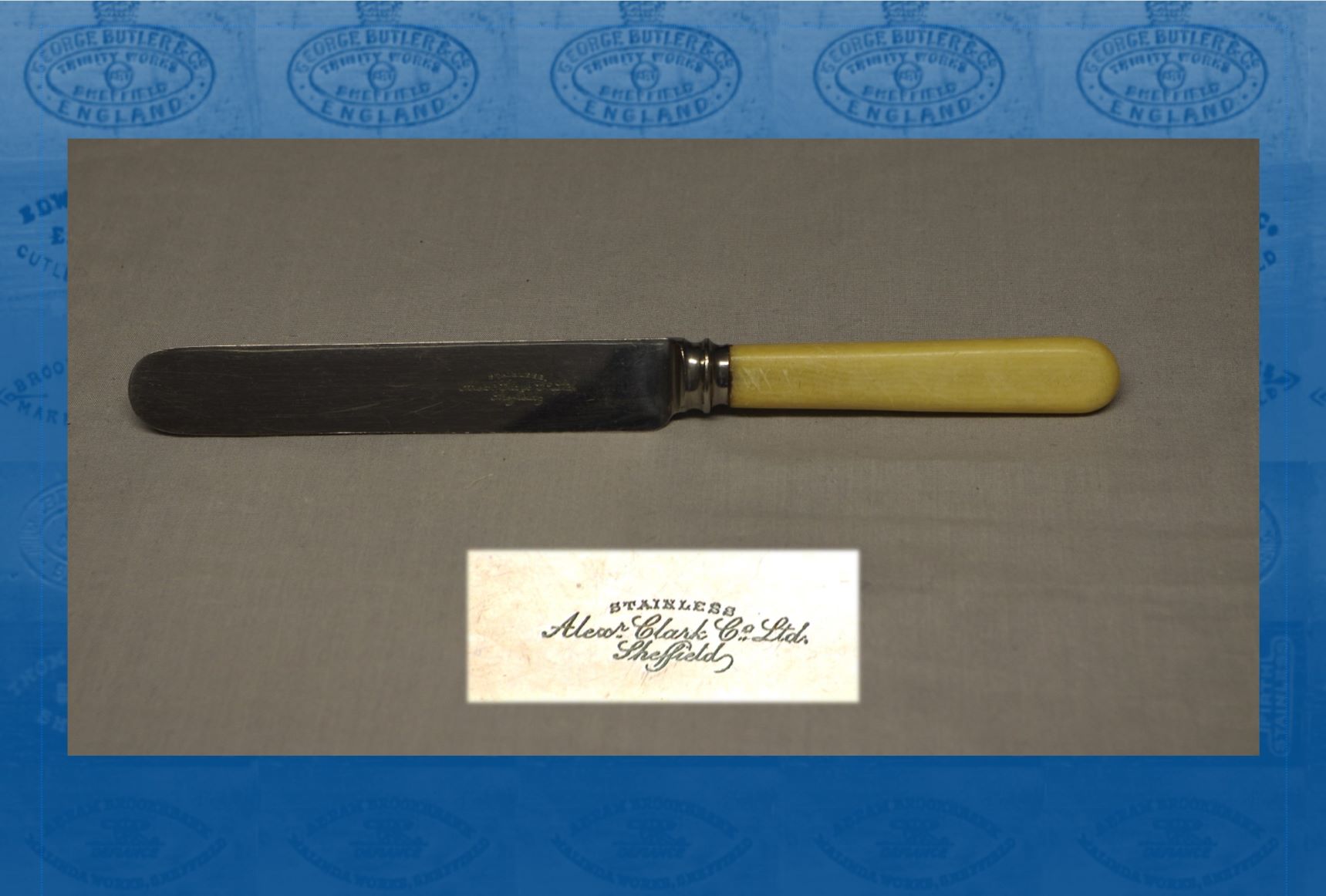
Welbeck Works / Portland Work, 1908; Picture Sheffield (a04740)




An Alexander Clark catalogue (c.1908) emphasised that they were ‘THE ACTUAL MAKERS’ of everything in its 495 pages. Clark’s was based in Lonford Street (adjacent to Great Portland Street). According to the catalogue, its factories were ‘Welbeck’ Silver Plate & Cutlery Works, Randall Street, in Sheffield; and ‘Portland’ Leather Works, Market Place, Great Portland Street. The introductory section of the volume had several impressive photographs of these factories. Across the frontage and interior buildings of Welbeck Works in Sheffield was emblazoned, ‘THE ALEXANDER CLARK MANUFACTURING COMPANY’. However, the factory in Randall Street was owned not by Clark’s, but by Robert F. Mosley.
Clark’s had been launched in about 1891 in Fenchurch Street, London, by Alexander Clark (whose full name was Clift Alexander Mawer Clark). He had been born in London in 1857, the son of Alexander Clark, a public accountant, and his wife, Charity. Clark’s specialised in silverware, cutlery, and dressing bags and cases. In 1894, when Clark opened premises in Market Place, he was joined by Robert Frederick Mosley (the son of R.F. Mosley). In 1901, Robert Frederick (‘employer’ and ‘traveller’) was living with his family at Clark’s Market Place workshop. The Mosleys became partners in the Clark company and by the early 1900s Welbeck Works in Randall Street was listed in directories (de Lange, 2013). Clark registered silver marks in Sheffield 1898 and 1900, besides marks in London, Birmingham, and Chester (Culme, 1987). In 1912, The Alexander Clark Co Ltd was registered.
Clark’s sold everything from table knives to razors, besides jewellery, and luxury household goods, such as dinner services and clocks. Its catalogue included presentation goods, such as a sterling silver wheelbarrow for £50. It was well known for its cased sets of cutlery and its leather travelling cases. Clark’s Sheffield steel products (the table knives had ‘finest shear steel’ blades) and its sterling silver and electro-plate were presumably made in Randall Street. ‘WELBECK PLATE’ had a quadruple deposit of pure silver (claimed to last at least thirty years). This emulated the ‘Prince’s Plate’ of Mappin & Webb, which had a showroom a few doors along Oxford Street from Clark. By 1919, Clark’s was listed at Welbeck Plate & Cutlery Works in Hill Street, Sheffield (a road which crosses Randall Street), in addition to its Fenchurch Street showrooms. But Clark’s Sheffield connection waned in the early 1930s. Alexander Clark, of Elliotts, Nuthurst, Sussex, died on 25 September 1938, leaving £44,939. In the early 1940s, the business apparently ceased trading.





